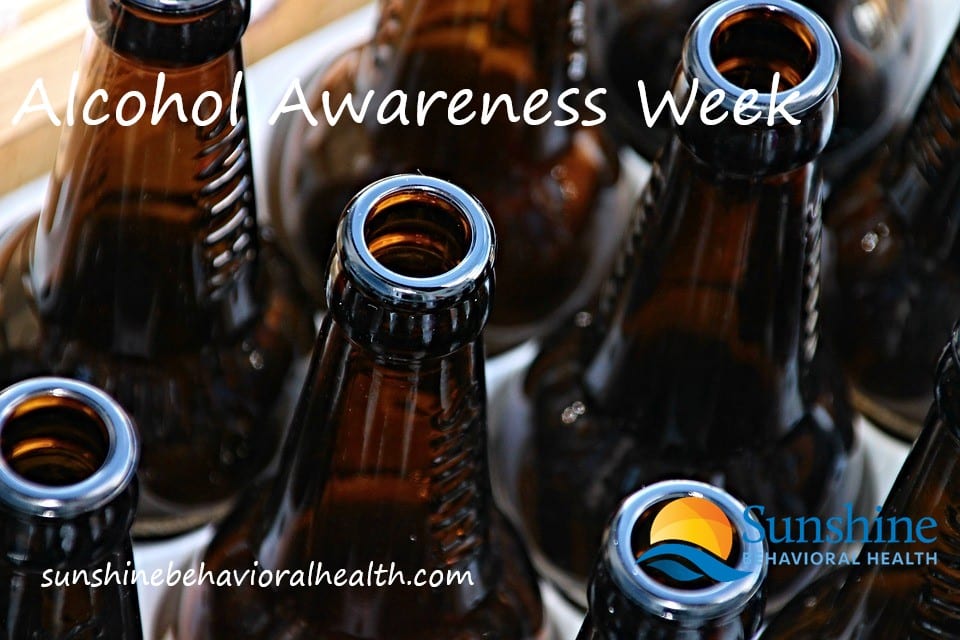
Surprising Facts About Alcohol for Alcohol Awareness Month
Alcohol is a common part of many cultures, especially as a social substance or as a way to unwind. But others may not be aware of its dangers, including alcohol abuse or addiction.
So what are some facts about this type of substance abuse? During Alcohol Awareness Month, we’ll discuss some truths about alcoholism.
In media and pop culture, alcohol is glorified in many ways–considered a social drink or a tool for relaxation. These depictions often portray alcohol in positive ways.
There is, however, another side of the story where alcohol drinking becomes out of hand and addiction could occur.
Alcohol Awareness Month gives us a moment to understand how and why alcohol addiction occurs. Understanding alcohol abuse and addiction can help people find ways to recover from them.
Fact 1: Social norms can trigger binge drinking.
According to the National Institute on Alcohol Abuse and Alcoholism (NIAAA) in 2019, 25.8% of adults in the U.S. aged 18 and above engage in binge drinking, a practice in which women drink four or more drinks on one occasion and men drink five or more.
College students are members of this age group. Many live independently on campuses or housing away from their families.
Social norms help to perpetuate binge drinking and other types of excessive alcohol use. Many college environments normalize drinking or are associated with social events that encourage alcohol consumption.
Some students even experience pressure to drink alcohol. When combined with genetic susceptibility, this can trigger alcohol abuse and addiction.
What to do: Understand the dangers of social or cultural norms surrounding excessive drinking. For example, people can learn ways to refuse alcohol and avoid problem drinking behaviors.
Fact 2: Alcohol abuse contributes to high blood pressure and other health risks.
Alcohol is a blood vessel constrictor. The body responds to alcohol by increasing the hormone renin in the blood, which causes the veins, capillaries, and arteries to constrict, thereby elevating blood pressure.
Constant constriction of the blood vessels can lead to hypertension (high blood pressure). There are many health risks related to elevated blood pressure levels. They can include:
- Heart disease
- Strokes
- Liver problems
- Aneurysms
- Eye problems
- Metabolic syndrome
Like dominoes toppling over each other, increased blood pressure due to alcohol abuse can create several health risks, some of which are irreversible.
What to do: Protect your health by moderating alcohol use or cutting it off completely if you have a history of high blood pressure. Doing this can help reduce the chances of hypertensive complications.
Fact 3: 29 People die every day in the U.S. due to alcohol-related accidents.
As much as 28% of vehicular accidents are caused by an alcohol-impaired driver. This staggering loss of life due to alcohol consumption and abuse is something that can be avoided.
One of the short-term (as well as long-term) effects of excessive alcohol use is impaired brain and motor function. Driving and operating machinery are some of the tasks requiring full coordination of one’s brain and muscles. Sadly, people sometimes ignore the deadly risk of alcohol, leading to many lives being cut short.
What to do: Prevent alcohol-related accidents by having a plan in place. Assign a nondrinking designated driver or find public transportation options when going out for a drink.
Alcohol Awareness Month: Stop alcohol abuse today
Alcohol might be a part of many people’s lives, but it doesn’t have to bring addiction or health risks to yours. By being aware of alcohol-related facts, taking steps to stop alcohol abuse, or encouraging people to drink responsibly, people can prevent the substance from hurting or killing.
Sources
niaaa.nih.gov – Alcohol Facts and Statistics
cdc.gov – Drinking Too Much Alcohol Can Harm Your Health. Learn the Facts
cdc.gov – Impaired Driving: Get the Facts
sunshinebehavioralhealth.com – How to Choose an Inpatient Drug Rehab
A Message From Our CEO
Medical disclaimer:
Sunshine Behavioral Health strives to help people who are facing substance abuse, addiction, mental health disorders, or a combination of these conditions. It does this by providing compassionate care and evidence-based content that addresses health, treatment, and recovery.
Licensed medical professionals review material we publish on our site. The material is not a substitute for qualified medical diagnoses, treatment, or advice. It should not be used to replace the suggestions of your personal physician or other health care professionals.






